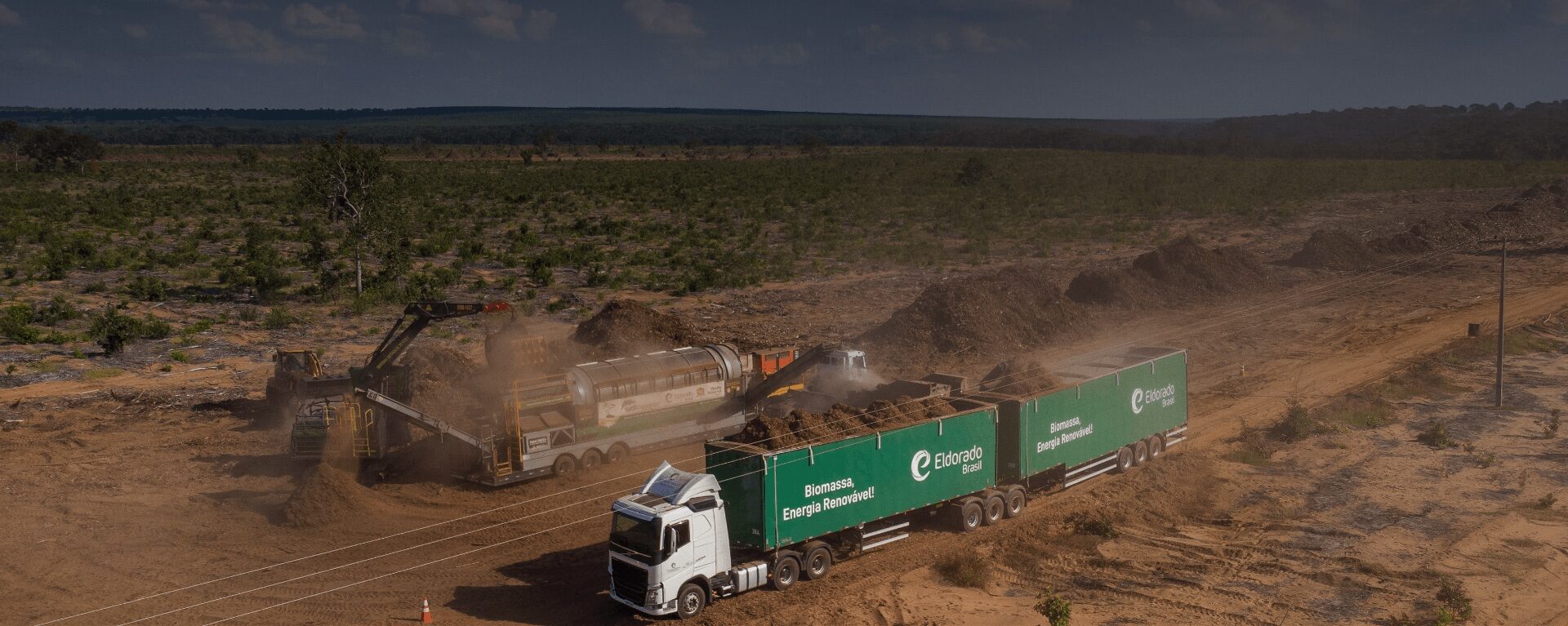The pulp
journey
Eldorado Brazil's production chain includes growing eucalyptus seedlings in Andradina, São Paulo State, planting them in our certified forests in eastern Mato Grosso do Sul, harvesting the wood for pulp production in Três Lagoas, then transporting the product to ports for shipment worldwide. This complex operation is enabled by our integrated logistics process, which uses road, rail, and rivers to transport raw materials to their destinations and pulp to the country's biggest ports efficiently, safely, and sustainability.
The process begins with box trucks taking seedlings to the forest to be planted. Harvested wood is then taken to the mill by three-trailer road trains, while wood chips are transported to the Onça Pintada power plant by two-trailer road trains, where they are used to generate clean energy. Pulp produced at the mill is transported to customers overseas via a flexible and diversified logistics network, with a river port at the Três Lagoas industrial complex, a railroad terminal in Aparecida do Taboado (Mato Grosso do Sul State), partnerships with road carriers, and the option to ship from port terminals in the south of Brazil or from the Port of Santos—Eldorado Brazil’s primary export point, where we have our own terminal and are currently expanding. This multimodal network, which includes transport by trains and boats, reduces risks related to road traffic and the environment and lowers carbon emissions, in addition to increasing logistical efficiency and cutting costs.


